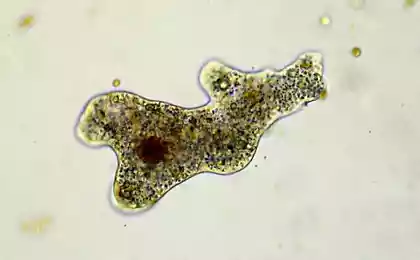497
Scientists— the taste of the water extends the life of
Live longer helps not only taste sweet, but the taste of water – however, while this pattern was found only in fruit flies.
Sweets are usually associated with obesity and diabetes (not to mention tooth decay), and because the sweet influence on life expectancy, seems to be uniquely bad – the one who has a lot of sugar, risking a lot to be ill and to die sooner. However Alcedo joy (Joy Alcedo) from Wayne state University and her colleagues from the University of Michigan found that sugar and in fact may prolong life.

Though here it is necessary to stress that the researchers, first, experimented on flies, fruit flies, and, secondly, studied not so much the fate of the sugar substances in the body of the flies, how many taste sensations. So it would be more correct to say that the life expectancy of the insects are not dependent on sugar, and from a sense of sweet.
Gustatory receptors in Drosophila are located on legs, wings and in the oral apparatus. If genetic mutations were off the mouth of the "sweet" receptors, the lifespan of Drosophila was grown, but if I disabled all the receptors responsible for sweet, flies lived significantly less than their normal comrades. The researchers stipulate that the amount eaten here did not play a role: fruit flies could eat a lot, could eat a little, but, lacking sweet receptors are still short lived.
We can say that the sweet taste of the fruit flies extended life – it is the taste, not very sweet substance, whatever it was. While the bitter taste had the opposite effect: if the flies did not feel bitter, they lived longer. But the most amazing effect treated to the taste of water: if insects did not feel the water, their life expectancy has increased by as much as 43%. The influence of the taste of the water was stronger than the effect of the ability to feel bitter or sweet. Similar results, incidentally, were previously obtained on the nematode Caenorhabditis elegans: longevity of worms depended on what flavors they feel or not feel. Why, the researchers don't know yet, although some of the assumptions they have. Taste sensations give us information about what we eat, and depending on this information, the body takes a decision – for example, how to better control your metabolism. The sensation of sweetness, as the scientists write in their article in the Proceedings of the National Academy of Sciences, stimulates in the brain of Drosophila is a special signaling pathway that affect insulin. Insulin is known to depend on the metabolism of carbohydrates, and it can be assumed that the inability to feel the sweet taste upset managing insulin, and because of this, and disturbed carbohydrate metabolism. A disturbed carbohydrate metabolism, in turn, can badly affect the life expectancy, even if the fly is especially a lot of carbs and not eating.
As for the taste of water, then, as suggested by the authors, all the matter in the protective reactions of the organism: if Drosophila does not feel the taste of water, it seems that unfavorable dry period, and so the body starts accumulating the fats that, when broken down, give water and which can be used as an internal water reserve. Although the drought this false, pre-stored fats can serve as a kind of "safety cushion" against any adverse conditions if they do occur.
Such studies are relevant not only to worms and flies, but also to people: the ability to feel – or not feel – or that the taste affects our "food policy", that is, the love of one product and dislike another. And therefore increased or reduced sensitivity to sweet, bitter, etc. can easily affect the metabolism and well-being of the organism as a whole.
Source: nkj.ru























